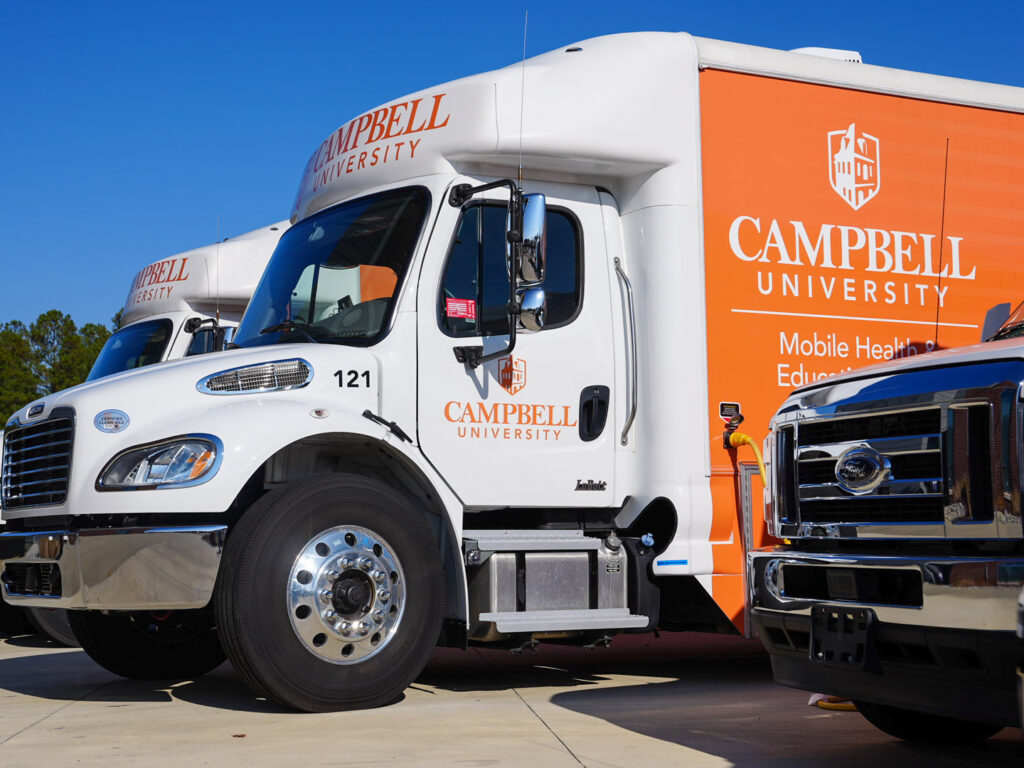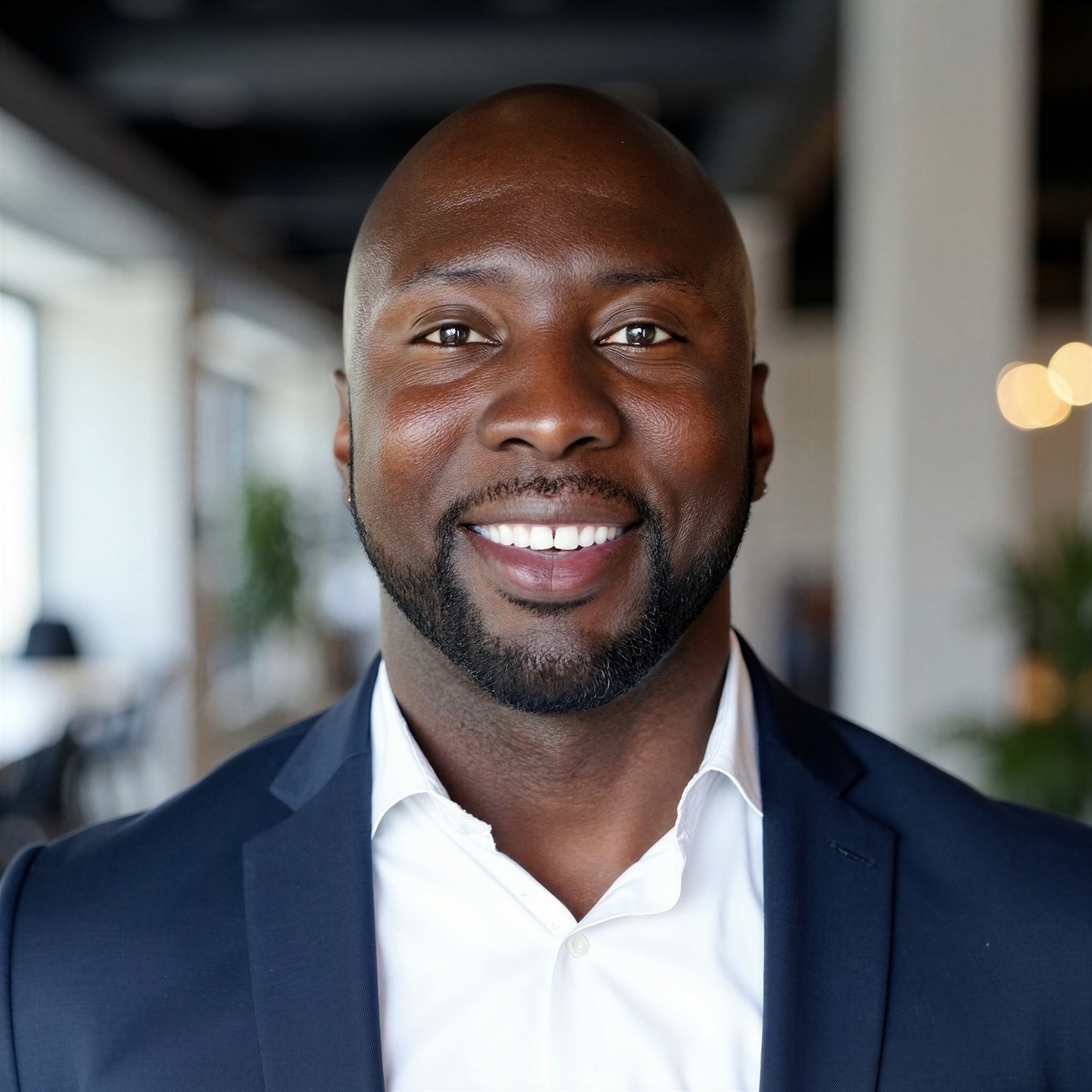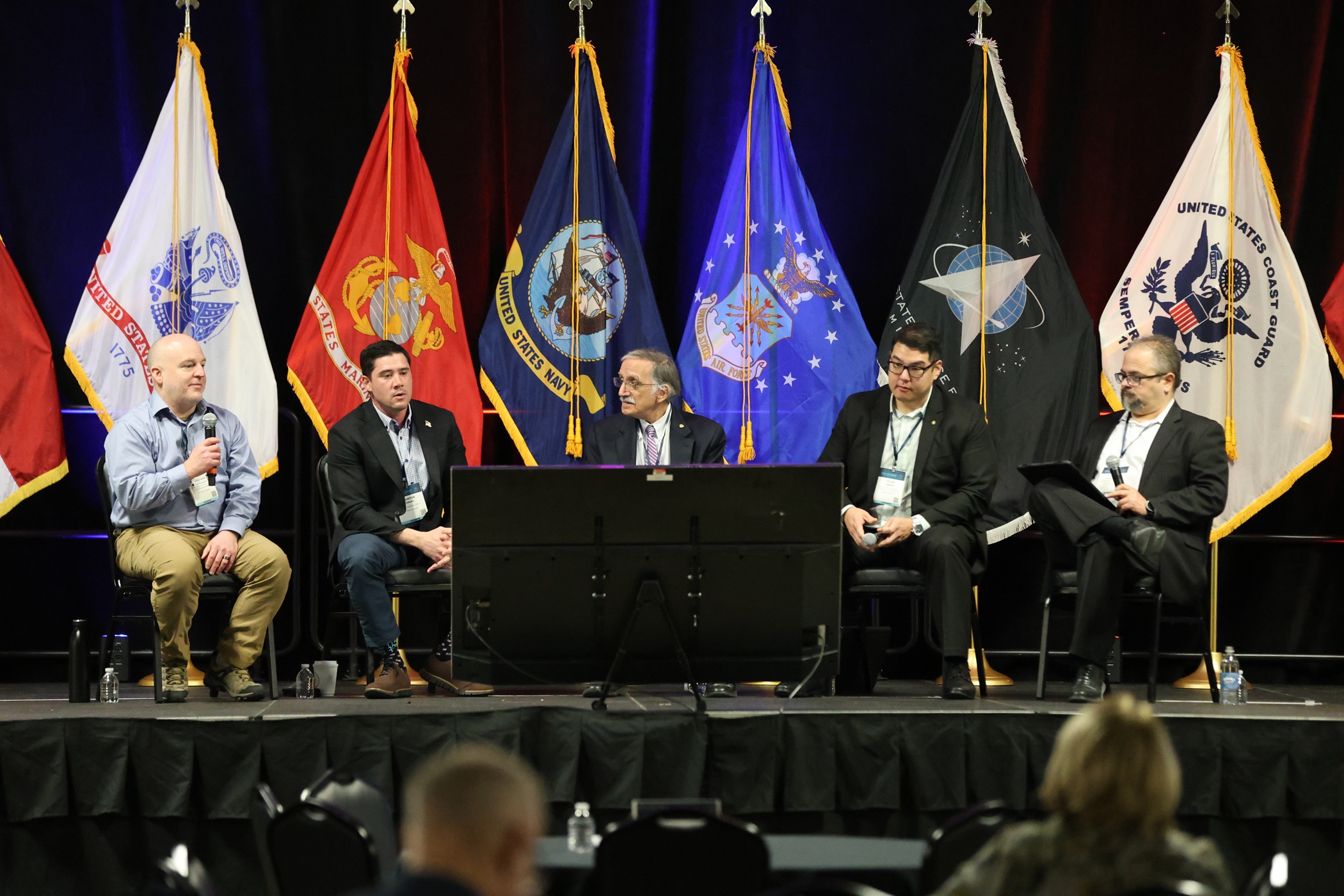
A grant from The Leon Levine Foundation is helping the Campbell University Community Care Clinic (CUCCC) deliver crucial healthcare services to farmworkers in Harnett, Duplin, Johnston and Sampson counties in eastern North Carolina.
The volunteer-based clinic, established in 2014 within the Campbell University School of Osteopathic Medicine (CUSOM), is composed of physicians and physician assistants who oversee teams of medical, PA and pharmacy students. The clinic partners with NC Field, the NC Farmworker Program and local health departments to identify and establish relationships with farms employing migrant workers.
In addition to seeing local patients in Buies Creek the student-run free health clinic uses two mobile health units to provide on-site care. The clinic sees only uninsured patients at or below the U.S. poverty line.
Some 150,000 migrant workers and their families reside in North Carolina each year, according to the N.C. Department of Health and Human Services (DHHS). Their work is oftentimes dangerous and physically demanding, and yet they face obstacles in accessing adequate healthcare.
Working days that often run long into the evening and accessing reliable transportation are just two examples of the barriers these workers must try to overcome to receive healthcare, explained Dr. Joseph D. Cacioppo (DO), chair of CUCCC’s Department of Community and Global Health, in a press release.
“We are their only source of medical care,” Dr. Cacioppo said in a press release. “Probably about 15,000 people in our catchment area are without healthcare, except for our ability to reach them with the mobile unit.”
Cultural and language barriers are other reasons some workers are reticent to reach out, though Campbell bridges that gap by utilizing non-governmental agencies, such as the NC Farmworker Health Program, which is based in Benson, North Carolina, and NC Field/Sembrando Salud of Kinston, North Carolina.
The clinic provides medically certified interpreters for Spanish-speaking patients and has a team that works to ensure follow-up and continuous care, as well as establishing a medical record that stays with the patients, wherever they may go.
The mobile units, purchased in 2020 with state COVID-relief funding, serve the workers in their camps, and a centralized site in Duplin County allows the clinic’s partners to offer transportation, giving the workers an opportunity to benefit from a variety of health services.
William Bukowski is a second-year medical student at CUSOM, where he serves as president of the Surgery Club and a mobile clinic manager.
“As the mobile clinic manager, I was responsible for directing our care teams and coordinating the care for the hundreds of patients we saw over this past year,” Bukowski said in a press release. “It is easy to be absorbed into the demanding world of classes and learning, but working with patients offers a profound source of motivation and perspective.
Free services include medical exams and treatments, laboratory evaluations, imaging referral to an in-kind provider, medications, behavioral health counseling and treatment, nutritional counseling, smoking cessation counseling and specialty provider referrals in addition to childbirth and breastfeeding classes.
“I was able to continually develop my humanistic and diagnostic skills with each patient in need, and I know I will be a better physician because of every second spent with them,” Bukowski continued in a press release. . “It has been truly inspiring to see the hard work my peers have committed to this student-run clinic and it makes me confident in our future doctors, PAs and pharmacists.”
Read the full release online here:

Jamel Williams transitioned from active military duty to the civilian workforce in 2018. He entered into the field of real estate with the hope of helping other military personnel find their home, as he knew from firsthand experience the challenge th

rom Concept to Capability panelists (L to R) Dr. Paul Baker principal deputy (A) of the Army Science Division Army Research Office, Klinton Snead, extramural staff director for the Army Research Office, panel moderator Phil Williams, VP of corporate

Photo by Tierra Mallorca / Unsplash Buying a house is not for the weak. This year, my husband and I decided to begin the hunt for a home. When I tell you January was one of the most stressful times in my life, I mean it from the bottom of m